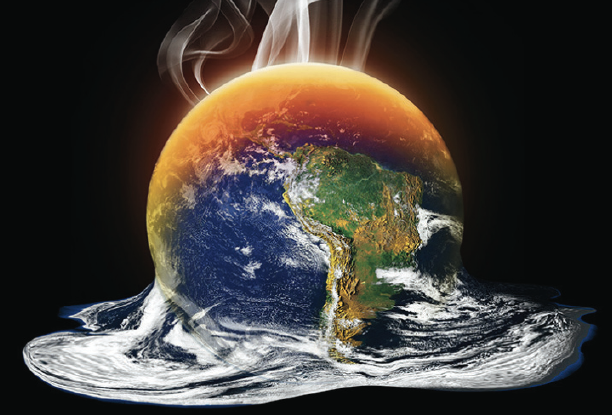MATTHEW EDLUND
Guest Columunist
Edlundr@lbknews.com
Some like it hot. Nearly sixty years ago, film director Billy Wilder presciently premised that  two men fleeing the hotly pursuing Chicago mob could succeed by dressing as women, and then unexpectedly find true love. But what happens to hot men and women when the mercury keeps rising? The strange transports of temperature are telling changing tales in the new psychology of heat:
two men fleeing the hotly pursuing Chicago mob could succeed by dressing as women, and then unexpectedly find true love. But what happens to hot men and women when the mercury keeps rising? The strange transports of temperature are telling changing tales in the new psychology of heat:
Flying Hot
In military parlance, “flying in hot” means deliberately transporting into a dangerous combat zone. In civilian terms, it has now taken a different meaning. Passengers trying to fly out of Phoenix recently discovered that Bombardier jets could not manage the 119 degrees at the tarmac. They were unsafe to fly, though bigger jets could apparently still lift off at 125 or 127 degrees. Hundreds of flights never flew. One millennial, frustrated following three cancelled flights, drove to San Diego in order to return to cool Seattle. We are now in the age of “too hot to fly.” Which will make the natives yet more restless:
Heat and Violence
When temperatures are too hot, people get testy. The American urban riots of the 1960s were partly blamed on the “long hot summer,” but heat decidedly hits human behavior. Physicians and anyone interested in health knows that hot temperatures kill people without air conditioning, particularly the elderly. Yet temperatures do not have to go above average human body levels (not quite 98.6 Fahrenheit but near it) for anger and frustration to burst forth. Revolutions and rebellions find fertile fields when temperatures rise. Indeed, that may be one reason we describe anger exacerbations as “rising.”
One reason too much heat troubles us is sleep loss. In many studies, people sleep poorly when the ambient temperature climbs above 75 degrees. That’s a pretty low bar these days. Sleep really gets worse above 80 degrees. If you’re an American in combat in Afghanistan or Iraq, or someone caught in the conflicts of Syria or Yemen, you’ll have more than ample experience.
We need sleep like food. Sleep is hard to get when it gets too hot. It’s not just insomnia researchers that know sleepless people are often irritable people.
Heat and Sex
It may be nice to have a hot body, and even better to have hot sex, but not when things get too hot. In sultry summers prior to the rise of social media and video games, sex was always a preferred summer experience. Yet too much heat can work as a potent anti-aphrodisiac. When the outside temperature gets too high, people become less athletic in multiple arenas.
Heat and Fire
Silicon Valley entrepreneurs are “on fire” with new ideas for new social media. High school students see their innamorata and “melt with love.” It’s not the kind of melting that recently took place on roads in central Portugal, where dozens died when the forests lit on fire. Many of the Australian imported eucalyptus trees quickly burst into flame, creating near firestorm conditions. Meanwhile, major wildfires across the American Great Plains have more than tripled in the last thirty years, from 33 in 1985 to 117 in 2014. Vacationlands are now under progressively greater threat of uncontrollable fires. The natural sense of safety we feel in the great outdoors more readily declines.
Heat and Bugs
Recent studies argue that most of the newly significant human epidemics, like AIDS and Ebola, are zoonoses, diseases in animals that then spread to humans. Bats in the very hot Amazon are considered future disease vectors. Will rising temperatures worldwide create changes in mutation rates, provoking new epidemics? Certainly the rapid shift in populations, human and otherwise, provoked by rapidly hotter climates, will make the spread of such diseases more likely.
Bottom Line
What happens when things get too hot? People get irritable. They can’t sleep. They act badly. They become more prone to anger and violence. Yet the effects of increasing global heat will be far more pervasive. The destruction of a large part of the animal world – estimates are up to 40% of the planet’s wildlife has disappeared in the past few decades – might change the psychology of some. Rising seas will certainly change people’s sense of place, home, and cultural certainty.
How much heat can people take? We’re about to test the limits of what may happen when things get too hot to handle.

